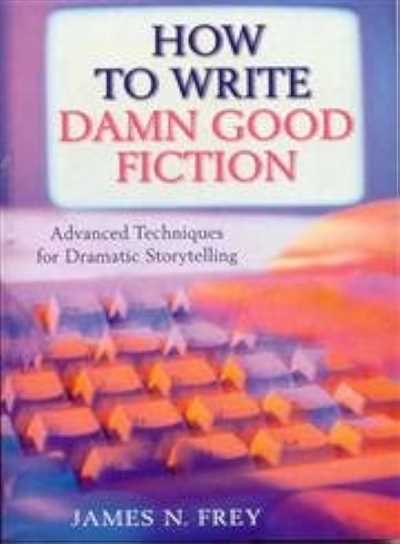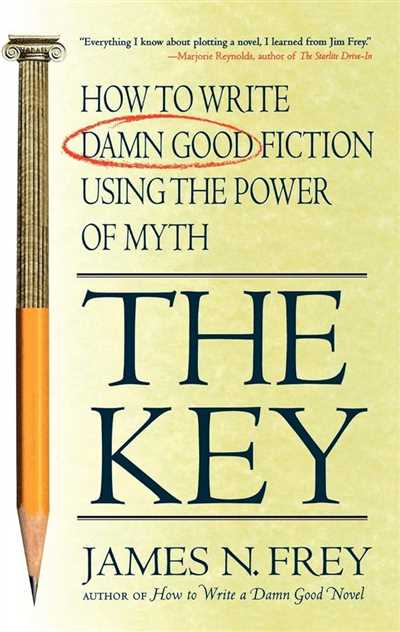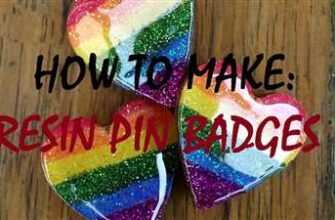
When it comes to writing fiction, there are a few key elements that can make or break your story. One of the most important aspects to mention is having a strong and unique protagonist. Your protagonist is the lead character who drives the story forward, so it is absolutely crucial to develop their personality and make sure they are someone readers want to root for.
Another important element is the setting. The setting of your story sets the stage for everything that happens, so it needs to be descriptive and novel-worthy. Whether it’s a bustling city or a quiet countryside, make sure to bring the world of your novel to life.
Dialogue is another aspect that can make or break a fiction piece. Good dialogue can show the personality of your characters, move the story forward, and bring a scene to life. Having realistic and engaging dialogue can be difficult, but it’s a skill that can be honed with practice.
While these three elements are foundational to any good fiction, there are a few other things to keep in mind when writing. First and foremost, you need a strong idea. This is the starting point for everything else in your story, so make sure it’s something that excites you and has potential to captivate readers.
Once you have your idea, it’s important to structure your story. This means deciding on the point of view, the timeline, and the overall plot structure. You need to know where your story starts, where it turns, and where it ends. This will help guide you as you write and keep you on track.
When it comes to writing fiction, sometimes the hardest part is simply getting started. It’s easy to get caught up in your own doubts and fears, but remember that you can always edit and revise later. Just get the words down on the page and keep moving forward.
Another important thing to keep in mind is that writing a novel doesn’t have to be done in one go. Break it down into smaller, manageable goals. Set aside dedicated time each day or each week to work on your novel, and before you know it, you’ll have a completed manuscript.
Lastly, don’t be afraid to ask for help. Whether it’s joining a writing group or seeking feedback from trusted friends or family, getting a second pair of eyes on your work can make all the difference. They may have ideas or insights that you never would have thought of on your own.
In conclusion, writing good fiction takes time and effort, but with the right elements in place – a strong protagonist, a vivid setting, engaging dialogue, and a solid structure – you can create a story that captivates readers and leaves a lasting impression. So, pick up your pen or sit down at your keyboard, and start bringing your ideas to life. The world is waiting for your novel!
- How to Start Writing a Novel
- Pick a story idea with novel potential
- Is your idea novel-worthy
- Eight Rules for Writing Fiction
- How to Write Good Fiction: 4 Foundational Skills
- 1 Strong Structure
- 2 Develop Characters and Emotions
- 3 Description and Setting
- 4 Dialogue
- Sources
- Videos:
- How to build a fictional world – Kate Messner
How to Start Writing a Novel
Writing a novel can be an exciting and rewarding endeavor. However, it can also be a daunting task, especially for beginners. Here are some tips on how to start writing a novel:
1. Develop your idea: Before starting to write, you must have a strong and unique idea for your novel. Think about the story’s concept, plot, and characters. Consider what type of novel you want to write and what message or theme you want to convey.
2. Create compelling characters: Good novels often have well-developed and relatable characters. Start by describing the personality, appearance, and background of your main characters. Give them individual traits and emotions that readers can connect with.
3. Set the scene: Every novel needs a captivating setting. Start by describing the world your characters live in. Give details about the time period, location, and atmosphere. Consider how the setting will influence the events and characters in your story.
4. Start with a point of conflict: A novel-worthy story needs a strong point of conflict or problem. It could be a personal struggle, a quest for something, or a conflict between characters. This conflict will drive the plot and keep readers engaged.
5. Show, don’t tell: When writing fiction, it’s important to show rather than just tell. Instead of simply describing events or emotions, use dialogue, actions, and sensory details to bring your story to life. This will make it more engaging for readers.
6. Structure your novel: A well-structured novel is easier to follow and more enjoyable to read. Consider using a three-act structure or another popular narrative structure. Plan out the major plot points before you start writing to ensure a cohesive and engaging story.
7. Start writing: Once you have your ideas and structure in place, it’s time to start writing! Don’t worry about getting everything perfect from the beginning. Just write and let your creativity flow. Remember, you can always edit and revise later.
8. Keep in mind what your readers want: While writing, think about what your target audience wants from a novel in your genre. Consider the reader’s expectations, and make sure your story delivers on what they’re looking for.
9. Read and learn from other novels: To improve your writing, read novels in your genre and study their techniques. Pay attention to how they introduce characters, build suspense, and create tension. Use these techniques as inspiration for your own writing.
10. Edit and revise: Once you’ve finished your first draft, go back and edit your novel. Look for inconsistencies, plot holes, and areas that need improvement. Polish your prose and make sure your story flows well. Don’t be afraid to seek feedback and make necessary revisions.
By following these tips and guidelines, you can overcome the difficulties of starting a novel and embark on an exciting writing journey. Remember, writing a novel takes time and dedication, but with persistence and creativity, you can create a compelling and memorable story that readers will love.
Pick a story idea with novel potential

When it comes to writing good fiction, one of the first steps is to pick a story idea that has novel potential. You want to choose an idea that is not only interesting and engaging, but also has enough depth and complexity to sustain a whole book.
So, how do you go about picking an idea with novel potential? Here are three tips to help you get started:
- Think outside the box: Don’t just go for the first idea that comes to mind. Try to find a unique angle or perspective that will set your story apart from others. Consider taking a slice of life or a small event and expanding it into a larger story.
- Know the world: Before diving into writing, make sure you have a strong understanding of the world your story will be set in. This includes the time period, location, and any relevant historical or cultural details that will add depth and authenticity to your story.
- Create compelling characters: Your protagonist and other characters are the foundation of your story. Take the time to figure out who they are, their motivations, and their emotions. A well-developed, relatable character can make or break a story.
Once you have these foundational elements in mind, it’s time to bring your story idea to life. Start by outlining the main plot points and structure of your story. You don’t have to have every detail worked out, but having a rough idea of where your story is going will help keep you on track as you write.
Remember, there are no set rules when it comes to writing fiction. Every writer has their own unique process and style. The most important thing is to write a story that you are passionate about and that you enjoy writing. If you’re not sure where to start, simply pick an idea that excites you and go from there.
Having a strong idea with novel potential is just the starting point. As you write, be open to new ideas and directions that may come up along the way. Sometimes the best ideas come to us as we’re in the midst of writing, so don’t be afraid to explore different paths and possibilities.
Writing good fiction is a skill that can be learned and honed over time. So, keep practicing, keep learning, and keep writing. With the right idea and the right skills, you can create a novel-worthy story that will captivate readers and leave them wanting more.
Is your idea novel-worthy
When it comes to writing fiction, the most important thing is to start with a strong and unique idea. But how do you know if your idea is novel-worthy?
First of all, everything starts with an idea. Whether it’s a story about a bank robber who becomes the unlikely hero, or a fantasy world where dragons guard hidden treasures, your idea needs to be something that hasn’t been done before. It should be fresh and unique, something that will grab the attention of readers.
Second, your idea needs to have strong potential for further development. If you can’t see it going beyond a short story or a simple concept, then it may not be enough to sustain a full-length novel. You’ll want to have enough material to fill the pages and keep your readers engaged until the very end.
Third, your idea needs characters that are worth following. Without compelling characters, even the most unique idea will fall flat. Take the time to figure out who your protagonist is – their personality, their goals, their emotions – and then make sure their story’s conflict and journey is something that will keep readers interested.
Lastly, your idea should have a solid structure and setting. The world you create should be vivid and believable, with descriptions that transport the reader into your fictional universe. And the structure of your story needs to be well-thought-out, with a clear beginning, middle, and end, and logical progression between them.
| Four elements that make an idea novel-worthy: |
|---|
| 1. Unique and fresh concept |
| 2. Potential for further development |
| 3. Compelling and well-developed characters |
| 4. Solid structure and setting |
So, before you start writing, take the time to evaluate your idea. Does it meet these criteria? Is it something that will stand out among the crowd of other novels? If the answer is yes, then congratulations! You’re ready to start the exciting and sometimes difficult journey of writing your novel.
Keep in mind that these are just foundational elements. As you continue writing, you’ll also need to focus on dialogue, pacing, and other writing skills to bring your story to life. But without a novel-worthy idea to start with, you may find yourself struggling to move forward.
Remember, there are no set rules for what makes an idea novel-worthy. What matters most is that it excites you as a writer and has the potential to captivate your readers. So, pick an idea that you’re passionate about and turn it into something amazing!
Eight Rules for Writing Fiction
If you want to write a great novel, you must first figure out everything in your head. Be sure to have a strong structure in place before you start writing.
Just because you know where your story goes doesn’t mean your readers will. Bring them along for the ride by showing them every slice of your unique world.
Be sure to guard against common pitfalls. Don’t simply describe what your characters are feeling – instead, show your readers the story’s foundational emotions.
Focus on the essential elements that make your story unforgettable. Your descriptions should be concise yet evocative, bringing the world you’ve created to life.
There are three vital rules when it comes to writing fiction: having a strong idea, developing intriguing characters, and keeping the reader hooked from the first page until the end.
Turn any ordinary affair into a page-turner by making sure your protagonist has a clear goal in mind. Give them a reason to fight for what they want.
When it comes to writing fiction, it’s important to keep in mind that not everything in the story needs to be novel-worthy. Some things can simply be left up to the reader’s imagination.
Don’t be afraid to pick up different skills along the way. You never know when they might come in handy.
Start your story strong. The opening pages should grab the reader’s attention and make them want to keep turning the pages.
How to Write Good Fiction: 4 Foundational Skills
When it comes to writing fiction, there are four foundational skills that every writer must develop. These skills are essential for creating compelling characters and engaging stories. Whether you’re a beginner or an experienced writer, mastering these skills will help you craft a strong and captivating piece of fiction.
- Character Development: One of the most important aspects of any story is the characters. They are the ones who drive the plot forward and make readers care about what happens. To create memorable characters, you must give them depth, describe their appearance and personality, and make sure they have clear goals and motivations. Your protagonist, in particular, needs to be someone readers can relate to and root for.
- Descriptive Writing: Good descriptions are crucial for bringing your story to life. Readers want to be able to visualize the world you’ve created, so it’s important to use vivid and evocative language. However, be careful not to go overboard with description. Sometimes, less is more, and leaving some room for the readers’ imagination can be more powerful than spelling everything out.
- Dialogue: Dialogue is an important tool for advancing the plot and revealing information about your characters. It should sound natural and be used to convey emotions, conflicts, and important plot points. Each character should have a unique voice, and dialogue should move the story forward in a meaningful way. Remember to use dialogue tags and attributions to clarify who is speaking.
- Story Structure: A well-structured story is essential for keeping readers engaged from beginning to end. The structure should have a clear beginning, middle, and end, with a strong opening that grabs the reader’s attention and a satisfying resolution. The plot should have a conflict, or a series of conflicts, that the protagonist needs to overcome. It’s also important to decide on the point of view and tense of your story.
These four skills are the building blocks of good fiction writing. They will help you create believable characters, interesting dialogue, and a well-structured plot. However, it’s also important to remember that there are no hard and fast rules in fiction writing. Sometimes, breaking the rules can lead to unique and compelling stories. The key is to know the rules and then decide when and how to bend or break them to serve your story.
So if you’re ready to start writing, remember to develop your character, create vivid descriptions, write engaging dialogue, and structure your story. With these foundational skills in your writer’s toolkit, you’ll be well on your way to creating captivating and memorable fiction.
1 Strong Structure
When it comes to writing good fiction, a strong structure is essential. It’s the starting point for any writer, and it’s what will keep your readers engaged from the first page to the last.
Think of your story’s structure like a banker would think of their financial statements. It needs to be organized, clear, and logical. Without a strong structure, your story may feel disjointed and confusing, and your readers will quickly lose interest.
So, what does a strong structure look like? Well, it’s made up of four main elements: the setting, the characters, the plot, and the dialogue. These foundational elements are what give your story its unique personality, so you want to make sure you pick them carefully.
Start by deciding on the setting of your story. Where does it take place? Is it in a known world or a completely unique one? The setting will help to shape the entire story and give readers an idea of what to expect.
Next, focus on your characters. Pick at least three main characters: the protagonist, the antagonist, and the sidekick. Each character should have their own individual personality and goals, which will drive the story forward.
Then, come up with a strong plot. What is the main goal of your story? What does your protagonist want to achieve? What obstacles will they face along the way? These are the questions you’ll need to answer to create a compelling plot.
Finally, don’t forget about the importance of dialogue. Good dialogue can turn a slice-of-life affair into an engaging read. It’s through dialogue that your readers will get to know your characters and understand their motivations.
Once you have these four elements in place, your story’s structure will be strong and ready to go. But remember, having a strong structure doesn’t mean you have to follow strict rules or adhere to a specific formula. It simply means that you have a clear direction for your story and that everything you write serves a purpose.
If you’re having difficulty with your story’s structure, here’s a simple trick: write it down. Sometimes, seeing your ideas on paper can help you organize your thoughts and make sure everything fits together nicely.
So, whether you’re a seasoned writer or a newbie to the world of fiction, remember the importance of a strong structure. It’s the foundation on which your story is built, and without it, your words may simply be lost in the wind.
2 Develop Characters and Emotions
When it comes to writing good fiction, one of the most important things you’ll need to do is develop your characters and their emotions. Having well-developed characters will not only make your story more engaging, but it will also allow your readers to connect with them on a deeper level.
So how do you go about developing characters and their emotions? Well, here are some ideas to get you started:
1. Start with the protagonist: The protagonist is the main character of your story, and it’s crucial to develop them in a way that readers will root for them. Think about their personality, their goals, and what makes them tick.
2. Give your characters flaws: No one is perfect, and your characters shouldn’t be either. Giving them flaws will make them more relatable and human.
3. Show, don’t tell: Instead of telling your readers how a character feels, show them through their actions and dialogue. This will make the emotions feel more real and authentic.
4. Use descriptive language: Descriptions are a great way to bring your characters and their emotions to life. Use vivid words and imagery to paint a picture in the reader’s mind.
5. Show character growth: Characters should evolve throughout the story, so make sure to show their growth and transformation. This will make their journey more impactful.
Remember, having well-developed characters and their emotions is foundational to good fiction writing. It will not only make your story more compelling, but it will also keep your readers engaged and wanting to know more.
3 Description and Setting
When it comes to writing good fiction, one of the most important aspects is creating vivid descriptions and captivating settings. This is what allows readers to fully immerse themselves in your story and feel like they are right there with your characters. Here are three essential tips to help you master the art of description and setting:
| 1 | Show, Don’t Tell: One of the foundational rules in fiction writing is to “show” rather than “tell” readers what is happening. Instead of simply stating that your protagonist is angry, give a detailed description of their clenched fists, furrowed brows, and simmering emotions. By using descriptive language and vivid imagery, you can bring your story to life in the minds of your readers. |
| 2 | Set the Scene: Start by figuring out where your story takes place. Is it in a bustling city or a secluded countryside? Once you’ve decided on the setting, describe the surroundings in a way that evokes the desired atmosphere. Whether it’s the cozy interior of a library or the eerie silence of a haunted house, make sure to paint a vivid picture for your readers. |
| 3 | Focus on the Details: The devil is in the details, and this holds true for fiction writing as well. To make your setting come alive, mention specific objects, sounds, smells, and colors that are unique to that place. This will help readers visualize the scene and create a stronger connection with your story. |
By following these three rules for description and setting, you can create a rich and immersive world for your characters and engage your readers from the very first page. Remember, the way you describe things and set the scene can make or break a story, so hone your skills and make every word count.
4 Dialogue

Dialogue is a crucial element in writing good fiction. It is through dialogue that your characters come to life and their voices are heard. In this section, we will discuss how to write effective and realistic dialogue.
First and foremost, your dialogue must serve a purpose. It must further the plot, develop the characters, or reveal important information. Every line of dialogue should have a reason for being there. If it doesn’t, it should be cut.
When writing dialogue, it is important to remember that people don’t always speak in complete sentences or use perfect grammar. Dialogue should sound authentic and natural, reflecting how real people speak. However, it should still be clear and easy to understand.
Show, don’t tell. Instead of using dialogue to simply convey information, use it to show what your characters are thinking and feeling. Dialogue can reveal a character’s personality, motivations, and conflicts. It can also create tension and conflict between characters.
Each character should have their own distinct voice. Pay attention to their word choices, speech patterns, and mannerisms. This will help readers differentiate between characters and make them feel like individuals.
Dialogue should also be used to move the story forward. It should reveal information and advance the plot. Avoid excessive exposition or long monologues. Keep the dialogue concise and focused.
Remember, dialogue is not just about words spoken. It is also about what is left unsaid. Sometimes, what is not said can be just as important as what is. Use silence and subtext to create tension and convey deeper meanings.
Finally, dialogue should be engaging and interesting to read. It should grab the reader’s attention and keep them turning the page. Use dialogue to bring your characters to life and make them feel real to the reader.
By following these guidelines, you can write dialogue that is compelling, realistic, and enhances your novel-worthy story. Dialogue is an essential tool for a writer, so take the time to develop your skills in this area.
Sources
When it comes to writing good fiction, there are several sources you can turn to for inspiration and guidance. Here are three foundational sources that will help you develop a novel-worthy story:
| 1. Personal Experiences One of the best sources for ideas and inspiration is your own life experiences. The setting, characters, and emotions you’ve lived through can all be used as material for your story. Keep in mind that you don’t have to simply write what you know – you can also bring in new elements and let your imagination take over. |
| 2. Observation and Research To create a believable and unique world for your story, you need to do some research. This could involve reading books on the subject matter, watching documentaries, or even going out into the world and experiencing things firsthand. By observing and researching, you can add depth and detail to your story and give readers a sense of authenticity. |
| 3. Imagination Perhaps the most important source for a writer is their own imagination. This is where the story starts and where everything from the plot to the characters comes from. Let your mind wander and explore different ideas and possibilities. Don’t be afraid to take risks and think outside the box. Your imagination is the key to creating a truly captivating story. |
By combining these three sources – personal experiences, observation and research, and imagination – you can create a compelling story that engages readers and keeps them turning the pages. Remember to always stay true to your own unique voice and style, and don’t be afraid to break the rules. Writing fiction is all about creating a world of your own making, so guard your ideas and let your protagonist lead the way. Happy writing!









